All the ways Channel 4 failed trans people with controversial Gender Wars documentary
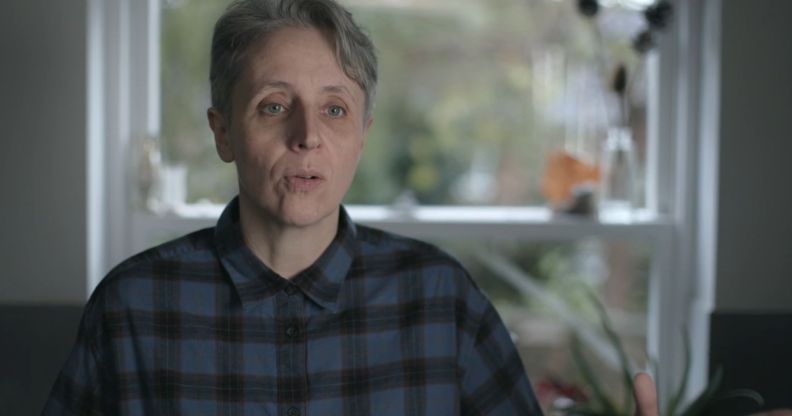
Channel 4’s Gender Wars documentary gives Kathleen Stock almost carte blanche to air her anti-trans views while non-binary and trans people are relegated to being talking heads in the corner. (Channel 4)
Channel 4’s Gender Wars markets itself as delving into “both sides” of the toxic discussion on the lives of trans people, but its surface-level skimming does a disservice to trans, non-binary and queer people fighting for their lives in the UK.
The documentary is narratively driven, in an extremely large part, through the lens of gender-critical campaigner Kathleen Stock, who quit her University of Sussex job in 2021 after students and advocates protested against her anti-trans views.
It opens with Stock arguing she has a “bad reputation” because of her views. The opening line of the carefully scripted programme declares “battle lines have been drawn and any constructive dialogue seems to be impossible”.
The documentary frames Stock’s experience in the wider context of a “dialogue” on trans rights in the UK, but utterly fails to provide ample context on why trans people are fighting for their right to exist.
It juxtaposes images of her walking forlornly outside, looking out a train window with a despondent expression, as sad music plays in the background, and talking to the camera, with segments of trans rights activists advocating for the community.
Stock’s story is given seemingly endless air time while trans and non-binary contributors are relegated to the sidelines, occasionally popping in to remind people that trans people are, in fact, people.
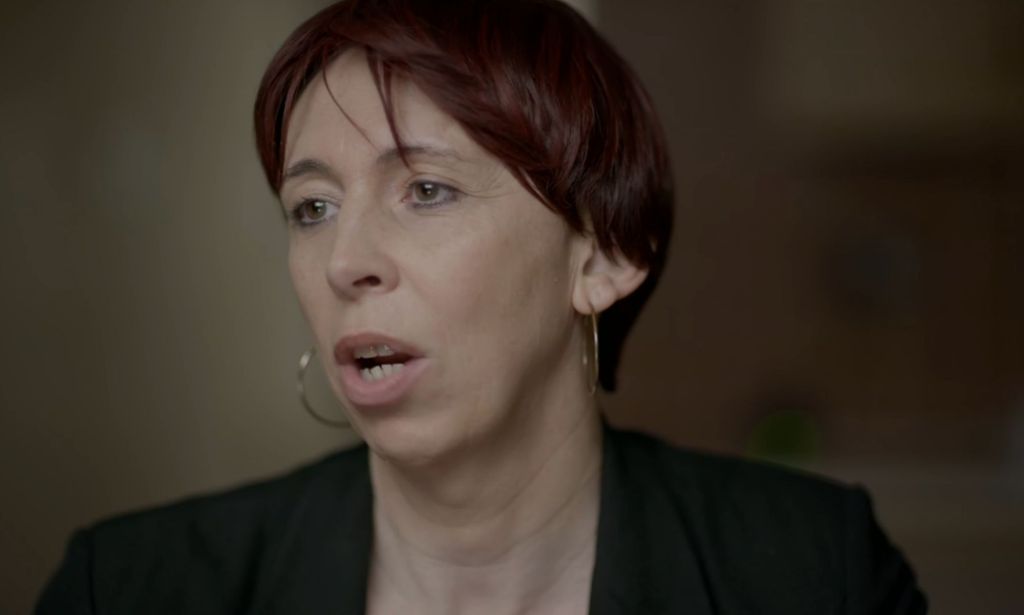
The documentary won’t tell you that Stock has a history with certain groups that believe the presence of trans people is potentially dangerous, or that the trans interviewees say they weren’t aware of how much the hour-long programme would focus on the anti-trans activist.
Stock once said that “trans women are still males with male genitalia” and should be excluded from certain single-sex spaces. She aligned herself, as trustee, with anti-trans pressure group LGB Alliance.
The academic also signed the Women’s Human Rights Campaign’s declaration on “Women’s Sex-Based Rights”, which calls for trans women to be excluded from all women-only spaces and ban gender-affirming healthcare for trans minors.
Realistically, no programme of this length will be able to accurately represent the long battle that LGBTQ+ and trans people have fought in the streets, in courts and in the hearts of others for equal rights.
But Gender Wars doesn’t provide ample airtime for the wisdom of trans activist and legal scholar Stephen Whittle, a trans man who’s been involved in activism for decades and has a wealth of lived experience to draw on.
It doesn’t give enough context to Dr Gina Gwenffrewi’s knowledge about the intersection of the attack on trans rights, the right-wing’s weaponisation of free speech absolutism and the denigration of marginalised groups.
Instead the documentary dedicates an entire segment to rising violence against women and the damage that this does to society, as it’s a “central issue to both sides”.
It brings up the murder of Sarah Everard, who was kidnapped and murdered by a Metropolitan Police officer in 2021, and it mentions statistics of violence that cisgender women face in the UK.
Then, Stock chimes in to talk about “social norms”, and say people who look like a “hulking great bloke” shouldn’t be allowed in single-sex spaces.
But the documentary doesn’t tilt the focus to talk about the intense and deadly violence trans people also face.
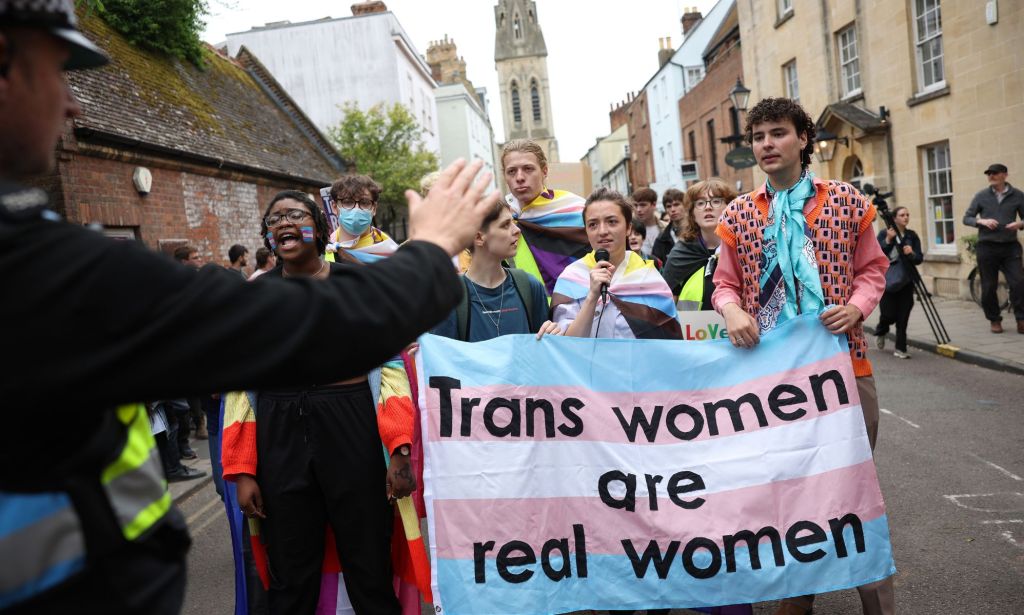
Groups such as Trans Media Watch, Trans Actual and Trans Safety Network have tirelessly tracked anti-trans hate in the UK, advocated for meaningful change that would help the lives of trans people, and championed the voices of those within the community.
Trans peoples’ homes have been burnt down, a trans man was grabbed by the genitals by a woman who wanted to know what sex he was, and young trans people have been threatened at knifepoint by thugs because of their identity.
Gender Wars doesn’t mention that Brianna Ghey, a 16-year-old trans girl with her whole life ahead of her, was fatally stabbed in February.
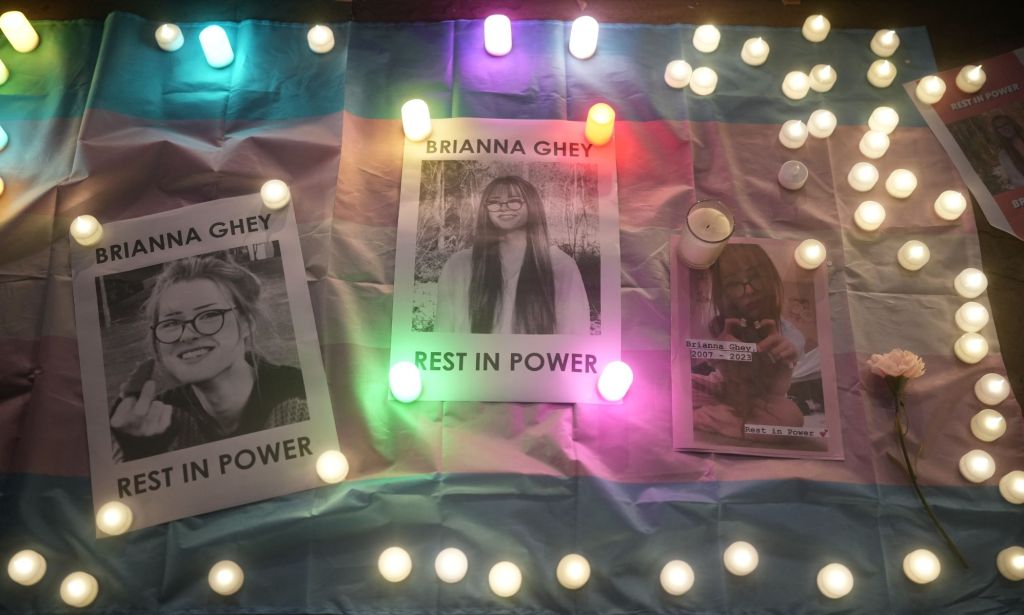
Thousands mourned Brianna, and her death provoked outrage among the LGBTQ+ community now that the UK has become a “dangerous” place for trans people.
The Channel 4 documentary doesn’t delve into the “moral panic” that trans contributor Charlie mentions in one scene.
It doesn’t discuss how a long list of news outlets, from the Daily Mail to the BBC, and The Daily Telegraph to The New York Times, dedicate immense resources to harmful discussions about the lives of trans people, with some unquestioningly giving a platform to anti-trans rhetoric.
There’s only a brief mention that trans people face ever-increasing waiting lists for gender-affirming healthcare on the NHS.
It doesn’t look at how many trans people face up to a five-year wait to even get in the door – which prompted a landmark legal challenge – and that many trans people feel uncomfortable or fall through the gaps when accessing other health services.
There’s no mention of how housing instability is a critical issue for the trans community or that during a cost-of-living crisis, some trans youth are having to “choose between eating and getting gender-affirming care”.
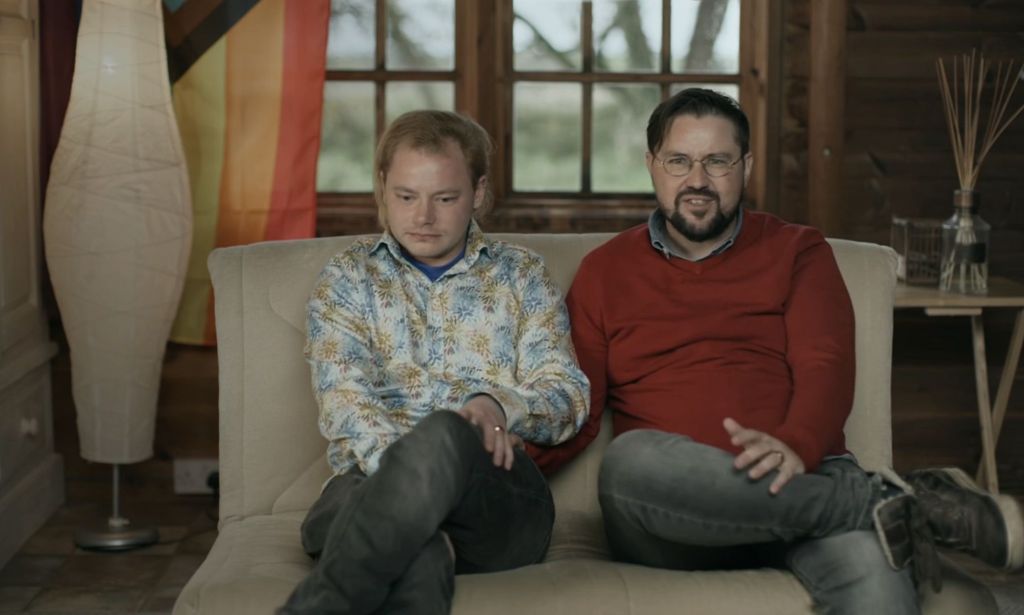
In one part of the documentary, Stock says she is concerned about the “irrevocable harms” being done to people who access gender-affirming care. It’s rhetoric that’s used as a bastion by gender-critical groups in their so-called quest to protect young people and attack the trans community.
But the programme doesn’t pause to contemplate Stock’s use of this anti-trans dog-whistle.
It fails to mention that studies overwhelmingly show that trans people who have access to gender-affirming treatment are significantly less likely to experience depression and anxiety or consider suicide than those barred from such treatments.
Further research has found that trans youth who had access to hormone therapy reported an increase in positive emotions, life satisfaction and self-confidence.
Additionally, several major medical associations around the world designate such treatments as safe and effective care for trans youth.
Ultimately, Channel 4’s Gender Wars is another tired documentary that tries to champion “both sides” but falls into the dangerous trap of pitting trans rights against women’s rights.
It amplifies the voices of those advocating for removing the humanity of trans people from the equation while the voices of trans and non-binary people are shown as little more than a side issue.
How did this story make you feel?

